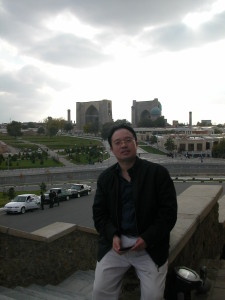
Energy consumption, creation, transport and usage are all serious topics that countries invariably deal with at one time or another.
Se Hyun Ahn, professor of International Relations at The University of Seoul, profiles the energy issues North Korea is currently facing.
Se Hyun Ahn is Director of Center for Energy Security Strategic Studies (CESSS) at University of Seoul and Professor of the Department of International Relations in the University of Seoul. He is the member of policy advisory committee for the ROK Ministry of Unification & and advises ROK Foreign Ministry and ROK Ministry of Finance and Strategy. He is also the member of Council for Security Council for Asia Pacific (CSCAP)-Korea and Pugwash Conferences. He was also listed in 2014 Marquis Who’s Who Encyclopedia.
He spent his numerous years in researching, teaching and studying in the US, China, Russia, and London. Prior to coming to Korea, he was the visiting research fellow at the Asia Research Centre at the London School of Economics and Political Science (LSE), and also was an Assistant Professor at the Department of Government and International Relations in the Beijing Normal University-Hong Kong Baptist University United International College in China.

Dr. Ahn received his Ph. D from the International Relations department in the London School of Economics and Political Science. He also holds an M.A. from the School of Foreign Service, Georgetown University and B.A. from Cornell College. He also studied at the St. Petersburgh State Mining Institute (Gorny Institute) in Russia.
His areas of particular interests include energy security and energy diplomacy of Russia and Northeast Asian states, and East Asian relations focusing on Manchuria, and regional economic security issues in Northeast Asia and Eurasia.
Se Hyun Ahn – North Korea’s Energy Crisis
There are serious problems with North Korea’s current energy structure.
North Korea has suffered from severe energy shortages for around a half century. In the past two decades, the country’s efforts have been largely unable to produce adequate domestic energy or ever to import it.
In short, North Korea’s energy security system has completely collapsed.
North Korea used to heavily rely on Russia and Eastern European countries, but the collapse of the Soviet Union changed the whole energy landscape in North Korea. Russian energy aid was suddenly abandoned, and North Korea was forced to rely only on domestic coal and limited hydro resources.
Furthermore, during the energy aid embargo initiated by the U.S. and its allies, China became the only nation continuing to provide energy assistance to North Korea. The main problem is that China often capriciously modifies the whole volume of oil shipped.
For example, when bilateral relations rupture, Beijing often significantly reduces the whole volume of oil or completely bans its transport to North Korea.
China’s influence over North Korea’s energy policy is apparent. China has scrutinized the details of North Korea’s energy program and is deeply engaged in every single energy infrastructure project there. China is involved in oil drilling in the sea off Nampo, Pyongnam Province, and also funded a number of hydropower projects for many years. Moreover, China has taken long term leases in two North Korean ports in the East Sea, Rajin and Chongjin.
Nowadays, a significant number of North Korean hydro and thermal power plants are being operated with Chinese collaboration as a type of joint venture. Also, North Korea’s important mining resources are exclusively exploited by Chinese, as the recent story of Jang Sung Taek’s execution illustrates.
In this sense, North Korea has several options to ensure its energy security and bolster its economy. All countries must understand the growing popularity of and astronomical demand for natural gas. From the perspective of the Korean Peninsula, maintaining or gaining access to Russian natural gas and North American shale gas is the most important wellspring of energy security. But, with various natural gas aid options such as Russian pipeline gas or US shale gas transfer, North Korea could solve its domestic energy shortage and, indeed, potentially play a very important role in the regional energy game.
한국어 버전은 눌러 재생
